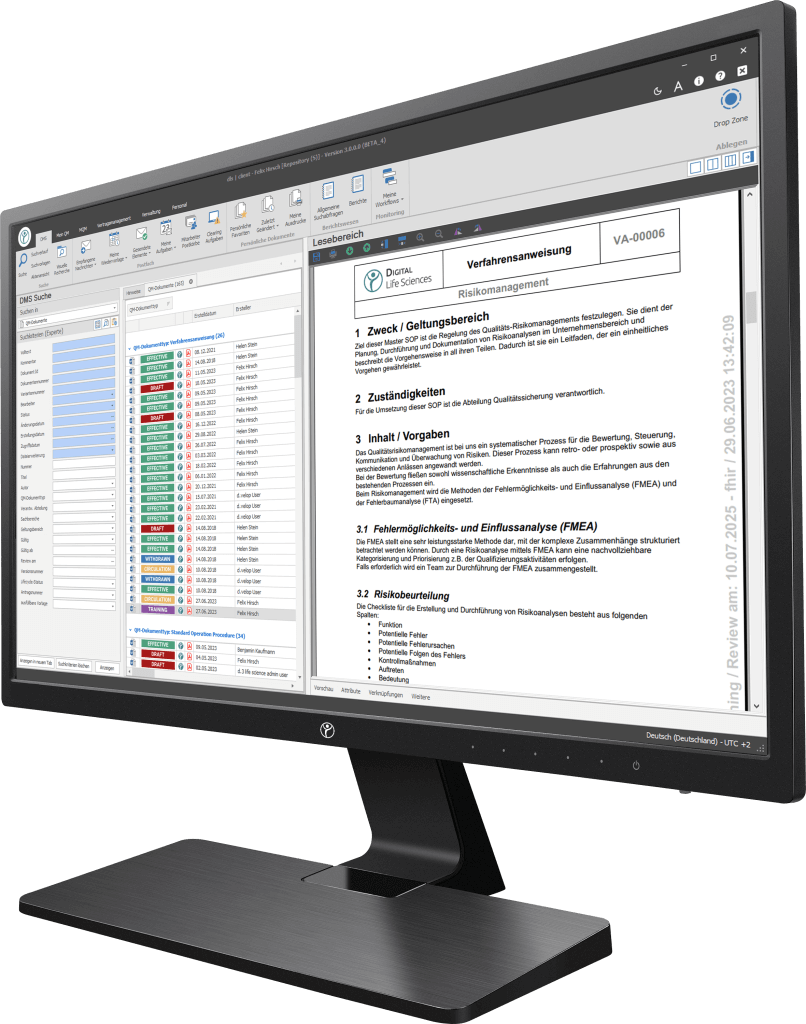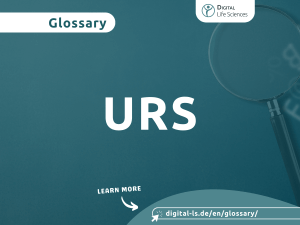Definition of the term ("What is a quality management representative?")
The role of the Quality Management Representative (QMR) in a company is of critical significance in ensuring the quality of products and services. A Quality Management Representative is a person who is responsible for developing, implementing, and maintaining quality standards and procedures in an organization. This includes ensuring compliance with quality standards and continuous improvement of quality processes.
The key responsibilities of a QMR
A QMR has a variety of tasks and responsibilities, including:
- Development of quality guidelines: The QMR is responsible for developing quality policies and procedures that meet the needs of the business.
- Monitoring quality standards: It is the QMR’s task to ensure that all departments and employees comply with the established quality standards.
- Training and awareness: The QMR provides training and training material to ensure that employees understand and integrate the significance of quality into their daily activities.
- Error detection and correction: A key aspect of the QMR’s role is the identification of quality problems and the implementation of corrective actions.
- The QMR or the persons specified since the revision of ISO 9001:2015 have the task of implementing the requirements defined in ISO 9001 with regard to the quality management system.
- Continuous control and evaluation of the further development of the quality management system.
- Coordination of the creation, updating and further development of the QM specification documents: Work instructions, process instructions and other operational documents.
The significance of a QMR for corporate quality
The presence of a Quality Management Representative in a company offers a number of advantages:
- Continuous improvement: By continuously monitoring and adjusting quality standards, companies can improve their processes and increase customer satisfaction.
- Efficiency improvement: A good QMR can help to identify and optimize inefficient processes, which can lead to cost savings.
- Customer trust: Adherence to high quality standards can strengthen customer confidence and improve the company’s reputation.
Your path to digitization - Discover our software
Our digitization solutions primarily address document-based processes in manufacturing, production and quality management. The basis of the dls | eQMS is a holistic ECM/DMS system. The ECM/DMS system can be connected to your existing ERP system (e.g. SAP) and thus map almost all document-based processes in the company.

Challenges for Quality Management Representatives
Although the role of the QMR is extremely important, quality management representatives also face challenges:
- Resolve conflicts: Conflicts may arise if quality standards are not met. A QMR must be able to effectively resolve these conflicts.
- Currentness of standards: The world is constantly changing and quality standards need to be updated regularly. This requires constant adaptation.
- Communication: Communication with different departments and employees is crucial to convey quality requirements and ensure that they are understood.
What changes have occurred for the QMR since the last revision of ISO 9001:2015?
A Quality Management Representative (QMR) acts as a quality management consultant within the company. As a central person, this position was explicitly required by the standard according to ISO 9001 until the revision ISO 9001:2015. However, since the last revision was introduced, a QMR is no longer explicitly required. In order for the management level to take responsibility as the promoter of quality management and no longer delegate the associated higher requirements to the QMR, the role of the Quality Management Representative is now no longer considered a standard requirement since ISO 9001:2015. However, the tasks of the QMR will continue to exist and must also be carried out in the future.
Conclusion
A Quality Management Representative is an essential part of any business, helping to improve quality and increase customer satisfaction. Their tasks are diverse, but the rewards for performing this role effectively are enormous.
Start your digital transformation with our powerful, modular software solutions
Frequently Asked Questions (FAQs)
What is the main task of a QMR?
The main task of a QMR is to develop, implement and maintain quality standards and to ensure the continuous improvement of quality processes.
What are the advantages of hiring a QMR?
Hiring a QMR can lead to continuous improvement, increased efficiency, and strengthened customer confidence.
How does a QMR deal with conflicts?
A QMR should be able to effectively resolve conflicts related to quality standards by focusing on communication and compromise.
Why is the currentness of quality standards important?
Keeping quality standards up to date is important as requirements and technologies are constantly changing. Current standards are critical to maintaining quality.
How can a company benefit from a QMR?
A company can benefit from a QMR by increasing quality, reducing costs, and building customer confidence.


